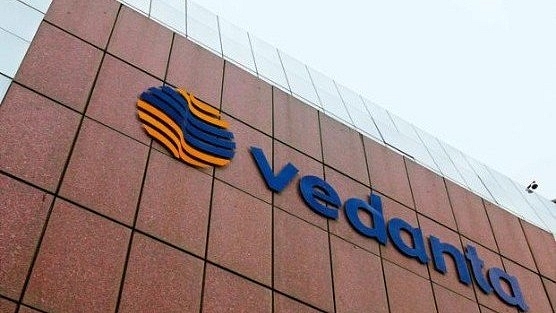
Thoothukudi Sterlite Plant Produced Over 50 Per Cent Of India’s Refined Copper But Closure Unlikely To Have Any Impact
The indefinite closure of the UK-based Vedanta’s Sterlite Copper Plant in Thoothukudi will cut the production of copper metal in the country by more than half. The fall in production, however, is unlikely to have any impact as domestic demand is 60 per cent of the base metal production in the country.
According to the Ministry of Mines 2017-18 annual report, refined copper production in India, which made up 3.5 per cent of the global output, was 7.90 lakh tonnes till 2015. Analyst firm Care Ratings, in a paper on copper industry, said that the domestic production was 7.95 lakh tonnes in 2016-17. Copper metal is produced by Sterlite Copper, Birala’s Hindalco and Government-owned Hindustan Copper.
These three companies are working at 75 per cent of their optimal capacity of 10 lakh tonnes anually. (See graph). Domestic production of copper production has been rising at compounded annual growth rate of six per cent with Sterlite and Vendanta dominating the output scenario.
One reason why there will not be any supply concern over the closure of Sterlite plant in the short-term is that in India copper is consumed only by the electric industry. Elsewhere in the world, building and construction industry consumes huge amounts of copper. Going forward, the housing for all scheme and expansion of the telecom sector that uses copper could bring with it a higher demand.
India exports copper to China, South-East Asia and Far-East nations besides gulf countries like Oman and Saudi Arabia. Six years ago, India made up 88 per cent of China’s refined copper imports but they have now dropped to around 35 per cent.
According to Vedanta, Sterlite enjoys a 37 per cent market share in the copper industry. Before its closure, the Thoothukudi plant had got an approval to double its capacity to eight lakh tonnes from the current four lakh tonnes. In its quarterly filings last week, Vedanta said its production, thanks to various ingenious developments, was 4.03 lakh tonnes in 2017. It said that the smelter would be ready by the first quarter of 2020 and the company has so far spent $139 million on the expansion with $50 million spent last financial year. Sterlite had plans to invest $717 million totally. The company has assessed its assets in Thoothukudi at $246. 3 million. Vedanta’s revenue from copper businesses in India and Australia were up 33 per cent in 2017-18 fiscal at $3.8 billion.
One of the advantages that Sterlite was enjoying from its Indian operations was that it was selling copper based on treatment and refining charges, whereas its sale in Zambia is based on the London Metal Exchange prices for copper. Lower LME prices led to the Zambian operations incurring a loss of $39 million last fiscal, though it was lower than the $107 million loss the previous fiscal.
The closure of Vedanta’s Sterlite Copper plant has hit its stocks but stocks of its rivals Hindalco and Hindustan Copper aren’t on fire. Copper prices have also been ruling stable in both spot and future markets. The June copper contract on the Multi Commodity Exchange was quoted at Rs 466 a kg and in the spot market, it ruled at Rs 4,66,000 a tonne.
The closure of Sterlite Copper plant is unlikely to impact supply, market or prices of copper in the short to medium term, though exports could be hit and imports of the metal may rise. The Tamil Nadu Government has said it wanted the plant shut permanently after 13 people were killed in the protests lodged demanding its closure on 22 and 23 May. The Madras High Court has stayed the expansion of the copper plant.